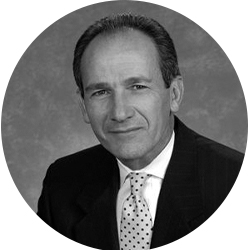Obtaining data on participants from retirement readiness tools, recordkeepers and aggregation tools is important in order to tailor effective communications.
“You can extrapolate data from a retirement readiness tool and pair it with third-party data,” McCarthy suggested.
Dan Peluse, director of retirement plan services at Wintrust Wealth Management, said it is also possible to leverage recordkeeper technology, “but it will be an incomplete picture. It is better to drive them towards an aggregator.” It also helps to have one-on-one meetings with participants.
Brett Shofner, president of Work Plan Retire, said obtaining data on participants so that the adviser can tailor communications to them is key.
“The lines are blurring between health care, retirement and general wellness,” Shofner said. “Participants are overwhelmed, so you need to make it simple for them. Tailor the communications to their mindset.”
Nationwide recently conducted research on workers who are eligible to participate in their retirement plan but don’t, McCarthy said. To the company’s surprise, it learned that “many people don’t understand our industry or how this benefit works.”
Peluse agreed: “Many Millennials have been automatically enrolled and still don’t know what a 401(k) is.”
Nationwide has moved many of its participant communications to social media, McCarthy said, adding the firm “continues to look for the next disrupter.”
To resonate with participants, advisers need to address what is top of mind for them, Peluse said. “Retirement planning doesn’t rank very high,” he said. Rather, workers are concerned about student debt, health savings accounts and other financial issues.
“We are expanding our practice to be a financial coach,” Peluse said. “We have a diverse participant base with different priorities. We rely on recordkeeping tools to have those conversations, to strengthen our relationships with plan sponsors and go beyond the 401(k) to discuss debt and college loans.”
Because so many workers don’t even understand what a 401(k) plan is or why it is so important to participate in it, it would help if their peers could act as everyday advocates to encourage them to participate, McCarthy said.









